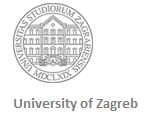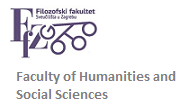Home » KNJIŽEVNI SEMINARI – 3. ili 5. semestar (Page 2)
Category Archives: KNJIŽEVNI SEMINARI – 3. ili 5. semestar
American postmodernism and popular culture
Course title: American Postmodernism and Popular Culture Instructor: Asst. Prof. Sven Cvek, Hrvoje Tutek ECTS credits: 6 Status: elective Semester: 2nd or 3rd year of undergraduate studies Enrollment requirements: student must be registered in the 3rd semester Course description: This course centers on some crucial aspects of US postmodernism, such as a transforming relationship between […]
Irish culture
Dr. Aidan O’Malley, visiting lecturerSubject: Modern literatureCourse title: Irish cultureECTS credits: 6Language: EnglishDuration: 1 semesterStatus: electiveCourse type: lectures, seminarsPrerequisites: enrolment in 3rd / 5th semesterCourse requirements: 10-15 minute oral presentation Mid-term exam (you are not permitted to answer a question on the text you presented) Final exam (you are not permitted to answer a question […]
American Women’s Writing in the Nineteenth Century (archive)
Course title: American Women’s Writing in the Nineteenth Century (A, 19. st.) Subject: Nineteenth-Century American Literature Instructor: Dr. sc. Jelena Šesnić ECTS credits: 6 Language: English Duration: Fall semester Status: Elective Course type: 1 period lecture + 2 periods seminar Prerequisites: Enrolment in the 3rd or 5th semester Course requirements: Regular attendance; assignments in and […]
Creating Place Out of Space: Early Australian Literature
Course title: Creating Place Out of Space: Early Australian Literature Instructor: Dr. Tihana Klepač, Assoc. Prof. ECTS credits: 6 Language: English Status: elective Enrolment requirements: enrolment in 3rd or 5th semester Course requirements: continuous assessment; regular attendance, work in class, 1 written assignment, mid-term and end-term exam. Course description: Selected texts exemplify the creation of […]
British Romanticism: poetry (archive)
Course title: British Romanticism: poetry (Former course title: English Romantic Poetry) Instructor: Martina Domines Veliki, PhD ECTS credits: 6 Language: English Duration: 3rd or 5th, semester Status: elective Course type: 1 hour of lecture, 2 hours of seminar Prerequisites: Introduction to English Literature or Introduction into English Lit 1 and 2 Course description: Authors we […]
American literature and culture 1: The Old South
Course title: American literature and culture 1: The Old SouthInstructor: Prof. Douglas Ambrose (Fulbright Scholar)ECTS credits: 6Language: EnglishStatus: ElectiveSemester: 3th or 5thEnrolment requirements: completed Introduction to English Literature_________________________________________________________________________________________ COURSE GOALS:Tell about the South. What’s it like there. What do they do there. Why do they live there. Why do they live at all. […]
The Nineteenth-Century American Novel (archive)
Course title: The Nineteenth-Century American Novel Instructor: Assoc. Prof. Jelena Šesnić ECTS credits: 6 Language: English Duration: Semester 3 to 6 Status: elective Course description: The novel figures as one of the key literary genres in the development of US national literature. The course proposes to chart a development and diversification of the American novel […]
Shakespeare
Course title: ShakespeareInstructor: Prof. Janja Ciglar-Žanić.ECTS credits: 6.Status: elective.Semester: 3rd or 5th.Enrollment requirements: completed 2nd or 4th semester.Course description: The course will be concerned with a selected number of Shakespeare’s plays viewed in the light of new theories of literature and culture. A study of the new strategies of reading, developed in the last few […]
Aspects of American Romanticism (archive)
Aspects of American Romanticism Književni seminar akademska godina 2011/12.Zimski semestarDodiplomski studij (2-3. godina) Naziv kolegija: Aspekti američkoga romantizma (A, 19. st.)Nastavnica: Dr. sc. Jelena ŠesnićECTS-bodovi: 6Jezik: EngleskiTrajanje: 3. ili 5. semestar; zimski Status: IzborniOblik nastave: 1 sat predavanja + 2 sata seminaraUvjeti za upis kolegija: Upisan 3. ili 5. semestar studija_______________________________________________________________________________________ Cilj kolegija:The period spans […]
American postmodernism and popular culture-archive
Course title: American Postmodernism and Popular CultureInstructor: Asst. Prof. Sven CvekECTS credits: 6Status: electiveSemester: 2nd or 3rd year of undegraduate studiesEnrollment requirements: student must be registered in the 3rd semesterCourse description: This course centers on some crucial aspects of US postmodernism, such as a transforming relationship between “popular” and “high” culture, inquiries into the exchanges […]
Irish culture 2013-14
Dr. Aidan O’Malley, visiting lecturerSubject: Modern literatureCourse title: Irish cultureECTS credits: 6Language: EnglishDuration: 1 semesterStatus: electiveCourse type: lectures, seminarsPrerequisites: enrolment in 3rd / 5th semesterCourse requirements: regular attendance and active participation in discussion; class presentation, to be developed into a 1500-2000 word essay; mid-term and end of term written exam.Course description: This course provides an […]
Victorian Literature: Genres and Issues (arch.)
Course title: Victorian Literature: Genres and Issues before 2020/21 Instructor: Prof. Borislav Knežević ECTS credits: 6 Status: elective Semester: 3rd and 5th, 4th and 6th Enrollment requirements: Introduction to English Literature Course description: This course is designed as an introduction to Victorian literature. The reading is made up by texts by representative works of some […]
Contemporary American Novel (arch.)
Course title: Contemporary American Novel Instructor: Prof. Stipe Grgas ECTS credits: 6 Status: elective Semester: 3rd and 5th or 4th and 6th Enrollment requirements: enrollment in the 3rd and 5th or 4th and 6th semester Course description: The course explores a number of novels which have been published since 9/11. The argument for targeting this […]
History of English Drama from Mass to City Play
Course: History of English Drama from Mass to City Play (2P/1S, 6 ECTS)Status: electiveTeacher: Tamara Petrić, assist.Semester: Fall term 2012/ 2013Lecture and seminaraLanguage: EnglishThe final grade in this course will depend on the following considerations: (1) a short essay/ term paper; (2) regular attendance and active participation; and (3) two exams.Objectives: The purpose of this […]



